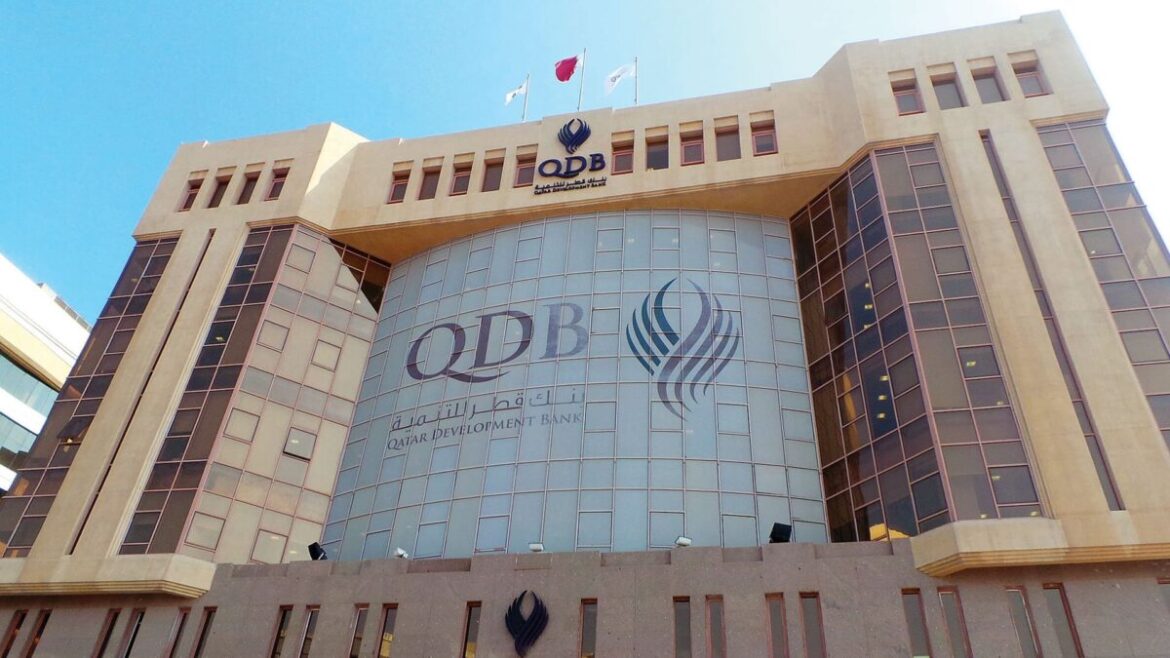A new Whitepaper recently launched by Qatar FinTech Hub, analyzes the factors and conditions driving FinTechs to make Qatar their new home in the Middle East and North Africa. It includes new insights for the FinTech community to leverage this rapidly growing market in Qatar and beyond.
Financial Technology (FinTech) firms across the globe are witnessing a surge in funding, new entrepreneurial talent, and policy makers’ attention. FinTech has disrupted financial services in an unprecedented way, using technology to offer a seamless experience to retail, SME, and corporate customers. The possibilities seem boundless, with FinTech leveraging everything from new mobile technology to AI and the Internet of Things to manage and move money seamlessly. This future may not quite be here, but Qatar is preparing to be at its forefront, establishing itself as a global center of financial technology.

FinTech – A Booming Sector in Qatar
FinTech was identified as a crucial tool to achieve long–term development for Qatar’s financial sector as part of the Second National Development Strategy 2018-2022.
FinTech, as an industry, offers a significant opportunity to drive Qatar’s economic diversification, one of the four pillars of Qatar’s National Vision 2030. Regulations and support dynamics, such as access to funding, have been put in place bringing up an exciting future for this rising sector. In fact, the country is steadily becoming a regional FinTech hub with a determined growth agenda.
From Qatar to the World
Titled “From Qatar to the World: A report on the state of FinTech in Qatar”, the newly released whitepaper by Qatar FinTech Hub offers a detailed look into Qatar as a FinTech-friendly nation with accelerated programs that strengthen talent development, access to capital and opportunities, and regulatory initiatives that foster a FinTech nurturing ecosystem.
Why Qatar?
Qatar has been catching up fast with globally trending technological developments and is shaping up well as a technology-led economy. In Qatar, blockchain and other emerging technologies can play a significant role in the overall economic transformation, especially in the digitization of various services, including government to citizen, business to consumer, government to business, and business to business.
With the rise of an ecosystem model in the financial sector, partnerships between banks and cross-sector players are required to discover new relationships and build innovative platforms. This will enable participants from both within and outside the region to access trade finance, asset exchange, payments, and value-added services.

The FinTech Landscape in Qatar
When it comes to this emerging pivotal regional gateway to the MENA region, there are four main factors that promise a rapid and consistent growth of FinTech in Qatar:
- Access to Opportunities: E-commerce and online transactions have proven popular in the country. The use of digital services and products is expected to further increase, thanks to the growing demand on online shopping and the uptake of digital banking. The COVID-19 pandemic has brought home the importance of digital transactions, and of using technology to better serve clients especially for FinTechs. Opportunities include online remittances, contactless payment solutions, remote processing of insurance claims and payments, and lending to SMEs.
- Favorable Regulations: Recognizing the importance of a clear and conducive regulatory policy for the growth of FinTech, authorities have enhanced the regulatory framework to help FinTechs establish themselves and function well. Qatar is actively working to ensure consistency with international standards, bring best practices to the country, and drive a country-specific regulatory focus.
- Access to Talent: With its large and established financial institutions (FIs), Qatar has a pool of domestic talent and a strong local pipeline. To further attract and retain the best talent, the country has taken measures such as introducing Accelerator and Incubator programs and optimizing collaboration efforts with prominent academic institutions.
- Access to Capital: Qatar offers diverse sources of funding, including venture capital (VC), regulator-backed Accelerator and Incubator programs, and angel investors. Qatar Development Bank (QDB) facilitates funding through its QR365 million VC fund and there is a lot of potential to source funds from other countries. The current funding structure of QFTH, Qatar Business Incubation Center (QBIC), and Qatar Science and Technology Park (QSTP) can be used to attract funding for startups.
 Qatar’s FinTech Sector
Qatar’s FinTech Sector
Qatar has a mature financial services sector, which includes 18 commercial banks, 6 conventional banks, 4 Islamic banks, 7 branches of foreign banks, and a specialized development bank that finances SMEs. Commercial banking in Qatar dates to the mid-20th century, with Qatar National Bank (QNB) established in 1965 to become the largest bank by assets in the Middle East.
A mature financial services industry, coupled with national initiatives to support digitization across sectors, is expected to spur investments in FinTech. The Qatar Mobile Payment System creates a robust enabling environment for payment focused FinTechs. The launch of The Investment Promotion Agency of Qatar aims to attract foreign investment and encourage large companies to establish subsidiaries. The agency has also introduced free-zone incentive programs for foreign investors. Finally, the drive to host a cashless FIFA World Cup in 2022 and the newly launched smart city programs (TASMU) are likely to push digital adoption across the country.
Enabled by conducive regulation and a stimulating environment, Qatar’s FinTech sector is growing steadily. Qatar Central Bank (QCB) continuously collaborates with internal and external key stakeholders to successfully achieve Qatar’s National Vision 2030. Qatar’s nationwide smart transformation initiatives, its national vision for the year 2030, and the 2022 FIFA World Cup will harness and leverage technology in unprecedented ways as the country builds and scales a knowledge-based economy.
The Qatar Financial Centre (QFC) – a one-stop shop for licensing, commercial registration, immigration, and related services – grew by 33% in 2019, with nearly 200 companies registering on its platform. Over 800 FinTech, IT, tax, and investment consulting firms were a part of the organization in 2019. QFC is now planning to register 1,000 companies by 2022.
QFTH – A Leader in the Field
Qatar is taking big steps to become a global FinTech hub, notably by establishing the Qatar FinTech Hub. This creates a sound ecosystem for incubating domestic FinTechs and provides an enabling environment for foreign FinTechs to invest and grow in the region. With two flagship Incubator and Accelerator programs, running two waves per year, QFTH has already supported more than 40 FinTechs from across the globe and has been ranked as the second largest FinTech investor in MENA during Q1 2021.
Dedicated Incubation and Acceleration Programs from QFTH
With a vast network of prestigious global partners, mentors, and experts, QFTH was first established in 2019 rolling out two waves of the first ever specialized FinTech Incubator and Accelerator programs in Qatar. These two cohorts drew in over 1300 applications from across the globe and focused on Payment and Emerging Technologies to address the challenges of Financial Institutions. Selected FinTechs covered a variety of technologies such as AI, ML, Blockchain, RPA, NFC, NLP, OCR and other FinTech solutions.
The Incubator and Accelerator programs target entrepreneurs with innovative and cutting-edge FinTech ideas. They include financial, mentorship, and training support to FinTechs who participate in challenges; an Incubator program for early-stage FinTechs; and an Accelerator program for established players looking to boost their growth.
In 2020, Wave 1 was launched with a focus on FinTechs offering solutions in Payments, while Wave 2 addressed emerging technologies that can support financial institutions. Realizing the importance of connectedness and network in the FinTech community, QFTH has entered partnerships with several global FinTech hubs including Innovate Finance (UK), Findec (Sweden), Singapore FinTech Association, Mumbai FinTech Hub, Istanbul FinTech Hub, Beirut Digital District, the Fintech Association of Nigeria, FinTech Hub Lithuania, and FinTech Association of Malaysia.
These programs have witnessed the graduation of 40+ FinTechs with a total valuation of USD 1Billion+. Further growth is underway as the hub is now gearing up for Wave 3, themed “Embedded Finance and TechFin”. The program will start in October and run until December 2021.



